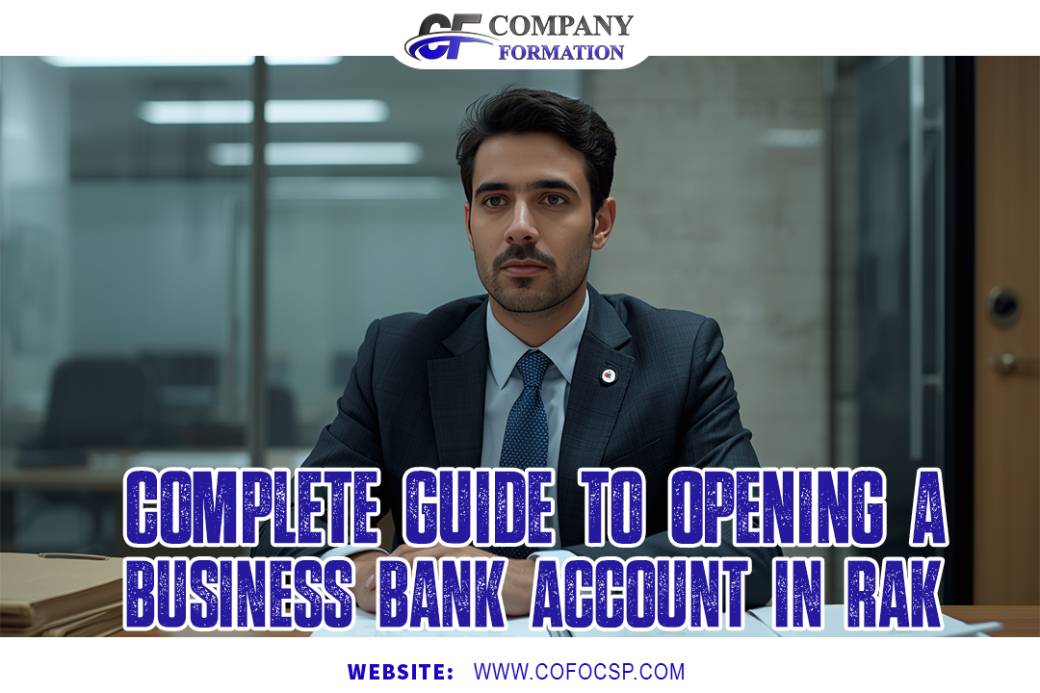How to Set up a Business in Dubai | 2025 Complete Guide
Imagine launching your dream company in a city where tax-free zones, global connectivity, and a vibrant business ecosystem make success feel like a handshake away. Starting a business in Dubai in 2025 offers 100% foreign ownership, low tax rates, and access to global markets through Free Zones and Mainland setups. Entrepreneurs can register a company in as little as two weeks by choosing the right trade license, securing modern office space, and submitting key documents like the Memorandum of Association (MOA) and trade name approval. Setup costs range from AED 15,000 to AED 70,000, depending on location, visa needs, and business activity, making Dubai a magnet for business formation and corporate expansion.
This comprehensive guide unpacks the Dubai business setup process, spotlighting Free Zones, Mainland business setup, and offshore opportunities in the UAE. Whether you’re an aspiring entrepreneur, foreign investor, or startup founder.
Why Open a Business in Dubai?
Before diving into the step-by-step process, let’s explore why Dubai is a global business hub that’s hard to resist.
A. Strategic Location
Dubai’s spot in the Middle East connects over 2 billion consumers within a four-hour flight, linking Europe, Asia, and Africa. Its bustling seaports and airports, like Jebel Ali Free Zone Authority (JAFZA), make it a nerve center for trade and logistics, perfect for businesses eyeing global markets.
B. Tax Benefits
The UAE’s 0% corporate and personal income tax in Free Zones is a game-changer. Mainland firms face a modest 9% corporate tax only on profits above AED 375,000, while a 5% VAT applies—far lower than most countries. These tax exemptions scream value for investors chasing profitability.
C. World-Class Infrastructure
From cutting-edge transportation to high-speed communication systems, Dubai’s infrastructure is a dream for business operations. Choose from flexi-desks, co-working spaces, or premium offices tailored to your business needs.
D. Business-Friendly Ecosystem
Clear legislation, government support via incubators like Dubai SME, and legal protections create a streamlined environment. Funding programs and accelerators like Dubai Future Accelerators fuel startup growth.
E. High Quality of Life
Ranked among the safest cities globally, Dubai offers top-tier healthcare, international schools, and luxury amenities, making it a haven for expatriates and their families.
Best Businesses to Start in Dubai, UAE
Dubai’s diversified economy opens doors for innovative ventures. Here are top business ideas for 2025, aligned with market demand and niche requirements:
A. E-commerce
With the UAE’s e-commerce market projected to hit $17 billion by 2025, opportunities abound in fashion, electronics, health supplements, and groceries. Digital adoption makes this a lucrative niche.
B. Real Estate and Property Management
Dubai’s booming real estate sector thrives on property development, leasing, and management. Niches like holiday rentals, luxury apartments, and commercial spaces promise high ROI.
C. Tourism and Hospitality
Attracting 16 million visitors annually, Dubai’s tourism industry fuels travel agencies, luxury resorts, and specialized tours. It’s a profitable sector for hospitality ventures.
D. Health and Wellness
Growing demand for fitness centers, nutrition consultancies, and wellness retreats reflects Dubai’s health-conscious vibe. Telemedicine and personalized healthcare are emerging opportunities.
E. Technology and Innovation
AI, blockchain, and cybersecurity startups flourish with support from Dubai Future Accelerators. Tech ventures align with Dubai’s vision for innovation.
F. Green Energy and Sustainability
The UAE’s push for sustainability drives demand for solar energy, waste management, and green construction businesses.
G. Education and Training
Expatriates fuel demand for vocational training, language schools, and tutoring centers, catering to skill development needs.
Steps for How to Start a Business in Dubai
Opening a business in Dubai is straightforward with the right steps. Here’s how foreign investors and local entrepreneurs can navigate the process:
Step 1: Decide Your Business Activity
Your business activity shapes your trade license and location. Options include:
- Commercial: Trading goods or services.
- Professional: Consultancy or specialized services.
- Industrial: Manufacturing or production.
Step 2: Choose a Business Structure
Your business structure impacts ownership and liability:
- Limited Liability Company (LLC): Ideal for UAE market access.
- Free Zone Entity: Offers 100% foreign ownership and tax exemptions.
- Sole Proprietorship: Perfect for small-scale operations.
Step 3: Select a Location
Choose between:
- Mainland: Access to local markets and government contracts.
- Free Zone: Over 50 zones like DMCC and JAFZA cater to international trade.
- Offshore: Suited for international operations and asset protection.
Step 4: Register Your Business Name
Ensure your business name complies with UAE naming conventions (no offensive terms or abbreviations). Reserve it with the Department of Economic Development (DED ) or Free Zone authority.
Step 5: Apply for a Trade License
Pick from:
- Commercial License: For trading activities.
- Professional License: For consultancies.
- Industrial License: For manufacturing.
- Tourism License: For hospitality businesses.
Step 6: Prepare Required Documents
Submit:
- Passport copies of shareholders and managers.
- Trade name reservation certificate.
- Initial approval from the DED or Free Zone authority.
- Memorandum of Association (MOA).
Step 7: Open a Corporate Bank Account
Research banks like Emirates NBD, Mashreq Bank, or HSBC. Provide your trade license, MOA, and shareholder details.
Step 8: Secure Office Space
Options include:
- Flexi-desk: Cost-effective shared spaces.
- Dedicated Offices: Custom layouts for larger businesses.
Step 9: Obtain Visas
Apply for visas for yourself, family, and employees. The process includes:
- Entry permit application.
- Status adjustment.
- Medical fitness test.
- Emirates ID registration.
Costs of Starting a Business in Dubai
Starting a business in Dubai involves costs tied to business activity, location, and visa requirements. Here’s a detailed breakdown for 2025:
A. Trade License Costs
- Commercial License: For trading.
- Professional License: For consultancies.
- Industrial License: For manufacturing.
- Estimated Costs:
- Free Zone License: AED 10,000–15,000 annually.
- Mainland License: AED 12,000–20,000 annually.
B. Business Registration Fees
Register through the DED for Mainland or Free Zone authorities.
- DED Registration: AED 1,000–3,000.
- Free Zone Registration: AED 2,500–10,000.
C. Office Space Costs
- Flexi-Desk: AED 8,000–12,000 per year.
- Dedicated Office Space: AED 20,000–50,000 per year, based on size and location.
D. Visa Costs
- Investor Visa: AED 4,000–7,000.
- Employee Visa: AED 5,000–10,000 per person.
- Family Visa: AED 4,000–7,000 per person.
E. Bank Account Setup Costs
- Documentation and attestation: AED 500–1,500.
- Initial deposit: Starts at AED 20,000, varies by bank.
F. Document Processing and Attestation
- Notarization and attestation: AED 1,000–3,000.
- MOA drafting: AED 1,500–2,500.
G. Additional Costs
- Marketing and Branding: AED 5,000–20,000.
- Insurance: AED 500–5,000.
- Utilities: AED 2,000–5,000 annually.
H. Total Estimated Cost
- Free Zone Setup (Basic): AED 15,000–25,000.
- Mainland Setup (Basic): AED 20,000–35,000.
- Premium Setup with Multiple Visas: AED 40,000–70,000.
Steps for Managing Costs
- Choose the Right Setup: Compare Free Zone, Mainland, or Offshore based on your business needs.
- Leverage Free Zone Packages: Many Free Zones offer all-inclusive packages to cut upfront costs.
- Negotiate Office Rentals: Opt for shared spaces or co-working spaces for startups.
- Consult Experts: Business setup consultants optimize costs and ensure compliance.
Understanding the costs of starting a business in Dubai empowers you to budget wisely and tap into the city’s pro-business environment.
Top Reasons to Start a Business in Dubai Free Zones
- 100% foreign ownership.
- Exemption from import/export duties.
- Simplified customs procedures.
- Access to world-class logistics hubs like DMCC and JAFZA.
Tips for a Successful Business in the Dubai Environment
- Understand Local Culture: Build trust through face-to-face meetings and respect for local customs.
- Leverage Government Support: Tap into Dubai SME and Dubai Future Accelerators for funding and mentorship.
- Stay Compliant: Renew trade licenses annually and ensure accurate tax filings.
- Invest in Marketing: Use digital marketing and trade fairs to boost brand awareness.
FAQs for Starting a Business in Dubai in 2025
Q1. How do I start a business in Dubai as a foreign investor?
Starting a business in Dubai as a foreign investor is streamlined and accessible. Choose a business activity (e.g., commercial, professional, industrial) and decide between a Free Zone, Mainland, or Offshore setup. Free Zones like DMCC or JAFZA offer 100% foreign ownership and tax exemptions, while Mainland allows access to local markets. Submit documents like passport copies, Memorandum of Association (MOA), and trade name approval to the Department of Economic Development (DED) or Free Zone authority. Costs range from AED 15,000–70,000, depending on location and visa needs. Hire a business setup consultant for compliance and efficiency.
Q2. What are the costs of setting up a business in Dubai?
Setting up a business in Dubai involves costs like trade license fees (AED 10,000–20,000), registration fees (AED 1,000–10,000), office space (AED 8,000–50,000 annually), and visa costs (AED 4,000–10,000 per person). Free Zone setups are often cost-effective with all-inclusive packages, while Mainland setups may require a local sponsor. Additional expenses include document attestation (AED 1,000–3,000) and corporate bank account setup (AED 500–1,500). Total costs range from AED 15,000–70,000, depending on business type and scale.
Q3. What is the difference between Free Zone and Mainland business setup in Dubai?
A Free Zone offers 100% foreign ownership, tax exemptions, and simplified customs, ideal for international trade (e.g., DMCC, JAFZA). Mainland businesses, regulated by the DED, allow local market access and government contracts but may require a local sponsor for certain business activities. Free Zones suit exporters and tech startups, while Mainland fits retail and consultancy. Costs for Free Zone setups start at AED 15,000, while Mainland ranges from AED 20,000–35,000.
Q4. What documents are needed to start a business in Dubai?
To register a company in Dubai, submit passport copies of shareholders and managers, trade name reservation certificate, initial approval from the DED or Free Zone authority, and a Memorandum of Association (MOA). Additional documents may include lease agreements for office space and visa applications. Notarization and attestation cost AED 1,000–3,000. PRO services can streamline this process for efficiency.
Q5. How long does it take to set up a business in Dubai?
Setting up a business in Dubai takes 1–2 weeks for Free Zone setups and 2–4 weeks for Mainland, depending on business activity and documentation. Fast-tracked processes in Free Zones like DMCC or JAFZA ensure quick registration, while Mainland may involve local sponsor agreements. PRO services can expedite approvals for trade licenses and visas.
Q6. Do I need a local sponsor to start a business in Dubai?
A local sponsor is required for certain Mainland businesses to act as a partner holding 51% ownership (though profit-sharing agreements can vary). Free Zones like DMCC or JAFZA allow 100% foreign ownership, eliminating the need for a local sponsor. Offshore setups also bypass this requirement. Consult a business setup expert to navigate sponsor agreements.
Q7. What are the best Free Zones in Dubai for business setup?
Top Free Zones like Dubai Multi Commodities Centre (DMCC), Jebel Ali Free Zone Authority (JAFZA), and Dubai Silicon Oasis offer tax exemptions, 100% foreign ownership, and world-class logistics. DMCC suits trading and commodities, JAFZA excels for logistics, and Silicon Oasis supports tech startups. Costs start at AED 15,000 with flexi-desk options.
Q8. How to open a corporate bank account in Dubai?
To open a corporate bank account in Dubai, research banks like Emirates NBD, Mashreq Bank, or HSBC. Submit your trade license, MOA, passport copies, and shareholder details. Initial deposits start at AED 20,000, with attestation costs of AED 500–1,500. Corporate banking supports business transactions and tax compliance.
Conclusion
Starting a business in Dubai unlocks unparalleled opportunities for growth and success. With tax advantages, a strategic location, and a supportive ecosystem, Dubai is a top choice for entrepreneurs and investors. The setup process may seem daunting, but expert guidance from business setup consultants simplifies it. Ready to launch your venture? Explore Free Zones like DMCC or Mainland opportunities, plan strategically, and connect with professionals to ensure a seamless setup. Dubai awaits your success—take the first step today!









